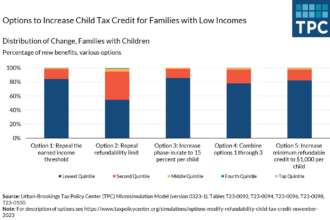The EU platform economy is estimated to generate a substantial €25.7 billion in VAT revenue annually. Given that the e-commerce sector contributes the majority of this revenue (€15.2 billion), it comes as no surprise that bolstering enforcement efforts and simplifying VAT regulations for this sector are central components of two major VAT reforms.
On December 8, 2022, the European Commission adopted the “VAT in the Digital Age” (ViDA) proposal — a comprehensive and multifaceted package of reforms pursuing three primary objectives, one of which is to modernize regulations governing the platform economy. Subsequently, on May 17, 2023, the Commission presented proposals for “the most ambitious and comprehensive reform of the Customs Union since its creation in 1968”. The customs reform aims to establish a tailored customs regime where platforms that facilitate e-commerce sales will be made responsible for all customs formalities and customs payment obligations.
Both reform proposals rely on the concept of the “deemed seller,” a common measure aimed at enhancing tax compliance in the platform economy. The deemed seller regime effectively reduces the compliance burden for sellers operating through platforms by designating the platform operators as the responsible party for declaring and paying the VAT on sales that they facilitate. Within the deemed seller framework, the VAT law establishes a legal fiction of two consecutive sales. Under this fiction, the seller is considered to be providing services or goods to the platform operator, who subsequently supplies them to the customer. It’s important to note that this legal fiction is solely applicable for VAT purposes and does not alter the commercial arrangement where the transfer of goods’ ownership occurs from the seller to the buyer. Currently, the deemed seller rules apply to two types of e-commerce sales to EU consumers: (1) sales of imported goods valued below €150, and (2) sales of goods owned by non-EU sellers and located within the EU at the time of the sale.
The reform proposals intend to significantly broaden the scope of the deemed seller rules. The new e-commerce import regime will eliminate the existing €150 threshold, necessitating platform operators to collect VAT and customs duty on all distance sales of imported goods they facilitate. Moreover, for sales of goods within the EU, the requirement that the goods must be owned by a non-EU seller will be abolished. Further details on the proposed changes are discussed below.
New import regime for e-commerce
The EU 2021 VAT E-commerce Package introduced the Import One-Stop Shop (IOSS) to simplify the process of declaring and paying VAT on distance sales of low-value goods imported from non-EU countries. Sellers who choose to utilize the IOSS are relieved from the obligation of registering for VAT in each EU country where they make sales of imported goods to EU consumers. Instead, they can register and fulfill their tax obligations in just one EU country. Furthermore, when the IOSS is employed, VAT is collected upfront at the time of the sale, eliminating the need for paying import VAT when the goods enter EU territory. The IOSS simplification is currently limited to imported goods with a value not exceeding €150, as these goods also benefit from a customs duty exemption. However, traders selling goods valued above €150 must pay VAT and customs duties upon importation.
The proposed reforms will bring about significant changes for platforms involved in facilitating sales of imported goods. Firstly, all sales of imported goods to EU consumers will be subject to customs duties and will be eligible for the IOSS simplification as the €150 threshold will be removed. Secondly, e-commerce platforms will assume responsibility for all customs formalities and payments, relieving consumers from this burden. Thirdly, the utilization of the IOSS will become mandatory for platform operators.
The decision to eliminate the €150 threshold stems from the abuse of the customs duty exemption for low-value goods by fraudsters who undervalue parcels entering the EU, thereby evading customs duties on import. With the proposed reforms, all imported goods will be subject to customs duties, and a simplified method will be implemented to calculate customs duties for frequently purchased low-value goods, reducing the numerous customs duty categories to just four.
Another notable change concerns the timing of when customs duties become due. E-commerce platform operators will be designated as “deemed importers” and will incur a customs debt when the payment for the sale is accepted, rather than when the goods physically arrive in the EU. As platforms will be responsible for ensuring the payment of customs duties and VAT at the time of sale, consumers will no longer encounter hidden import charges or unexpected customs paperwork upon the parcel’s arrival. They will pay all the required duties and taxes during the checkout process.
E-commerce sales within the EU
Platforms facilitating sales of goods within the EU currently have a tax collection requirement only if the goods are owned by a non-EU seller and sold to a private individual. However, the ViDA proposals seek to eliminate the condition that the goods must be owned by a non-EU seller. The rationale behind this change is twofold: to alleviate the compliance burden on EU sellers operating through platforms and to create a level playing field for both EU and non-EU traders. As a result of these reforms, e-commerce platforms will be required to collect VAT on all sales of goods within the EU, regardless of the purchaser’s status or the supplier’s location. The only exception to this rule will be applicable to platforms that are established solely in one EU country and exclusively facilitate sales of goods within that country.
Comments
The reform proposals put forth by the European Commission are very extensive in scope. If political agreement is eventually reached on these measures (which still require unanimous approval from all 27 EU member states), every internationally trading company will be impacted by them. While the exact timeline for implementation remains uncertain, the proposals envision a phased rollout of the changes for the platform economy spanning from 2025 to 2028.
In relation to the platform economy, the proposed measures further shift the burden of tax compliance from sellers to platform operators. As platforms will assume more responsibilities of the sellers, their compliance costs are expected to rise substantially. However, it is debatable whether the proposed expansion of the deemed seller rule, encompassing all supplies of goods within the EU, is necessary. Given the implementation of the DAC7 reporting obligations, tax authorities will have access to aggregated data on platform transactions. It would be prudent to evaluate the impact of these measures before imposing additional tax compliance obligations.
The elimination of the €150 threshold is a positive development as it will prevent businesses from undervaluing goods and eliminate the need for multiple registrations for sellers of high-value imported goods who are currently unable to apply for the IOSS registration. Furthermore, it will prevent unpleasant surprises for both sellers and buyers, where orders below the threshold are combined into a single shipment, resulting in additional VAT collected at the border.
Making the IOSS mandatory will promote a level playing field for e-commerce sellers. Currently, sellers who have not opted for the IOSS can list products at lower prices (excluding VAT, which customers must pay upon delivery), while those utilizing the IOSS must include VAT in their listed prices. Another advantage of expanding the IOSS is that platform operators will be able to apply the same procedures to all imported goods, regardless of the shipment value.
Read the full article here









